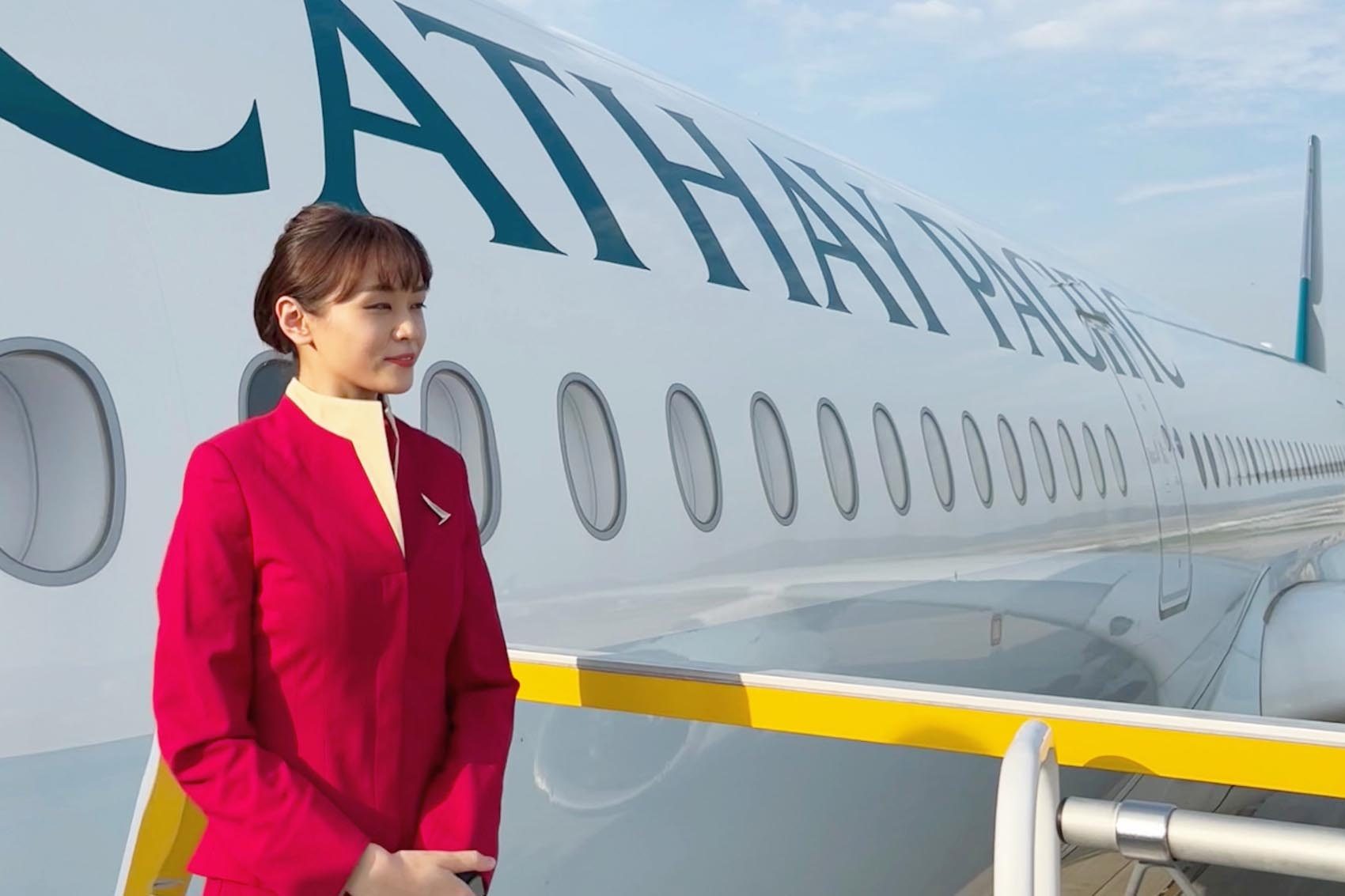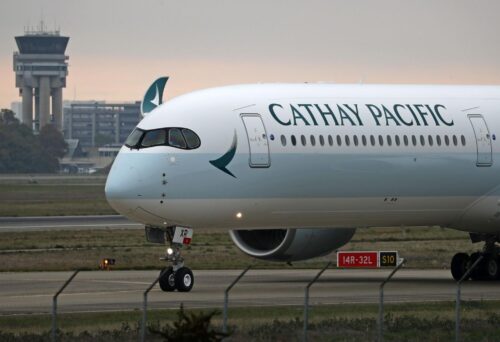Cathay Pacific recruits Mandarin-speaking staff after discrimination scandal
Following a controversy over alleged discrimination against Mandarin-speaking passengers on a flight, Hong Kong’s flagship carrier is hoping to repair its reputation among mainland customers by hiring more crew members capable of speaking their language.

Roughly a month after Hong Kong’s home carrier, Cathay Pacific Airways, landed in hot water for alleged mistreatment of Mandarin-speaking passengers, the airline has unveiled a plan to start hiring crew members from mainland China and increase the use of the Mandarin language on flights.
The decision was revealed earlier this week by Cathay Pacific CEO Ronald Lam Siu-por (林邵波 Lín Shàobō) in an internal memo. Writing to the company’s 20,000-plus employees, Lam announced that under a new recruitment and management policy with a focus on Mandarin-speaking ability, the company will start hiring flight attendants from mainland China in July and put in efforts to expand the scope of Mandarin-speaking services amongst cabin teams.
China news, weekly.
Sign up for The China Project’s weekly newsletter, our free roundup of the most important China stories.
“With the growing number of Putonghua-speaking customers, it has always been our intention to recruit a proportion of cabin crew from the Chinese Mainland after the pandemic,” Lam wrote, quoted by Bloomberg. Putonghua, also called Standard Mandarin, is mainland China’s official language, whereas in Hong Kong, Cathay Pacific’s home base, Cantonese is the most commonly spoken language.
Lam explained that the airline will prioritize domestic flights in its move to add more Mandarin-speaking staff, which will then gradually expand to international routes. Beginning from August, Mandarin will be a required language used for broadcast announcements on flights between Hong Kong and the mainland. Moreover, flight attendants will have their nameplates updated with information about what languages they are capable of speaking. Those who are proficient in more than one Asian language are eligible for a monthly allowance as a reward.
Lam also added that Cathay Pacific will launch a new training program for crew members in July, with the goal of helping them better understand the importance of providing consistent and considerate service to passengers from different backgrounds and cultures.
The decision comes weeks after the airline fired three flight attendants who were accused of being rude and ridiculing non-English-speaking passengers on a flight from the southwestern Chinese city of Chengdu to Hong Kong in May. “If you cannot say blanket in English, you cannot have it…Carpet is on the floor,” one of the sacked employees can be heard saying in a recording that went viral online.
Amid cries of discrimination from mainland internet users and scathing editorials published by Chinese state media, Cathay Pacific scrambled to contain the fallout. Over the course of two days, the company issued multiple apologies while vowing to punish the employees involved in the incident. In addition to the dismissal, Lam pledged to spearhead a cross-departmental special task force to carry out a comprehensive review to ensure that similar offenses will not occur again.
Fearful of the scandal’s potential damage to Hong Kong’s post-pandemic drive to revitalize its tourism industry, which has long been powered by mainland travelers, the city’s Chief Executive John Lee Ka-chiu (李家超 Lǐ Jiāchāo) also weighed in on the controversy and called on Cathay Pacific to “retrain” staff. “The words and deeds of the flight attendants hurt the feelings of compatriots in Hong Kong and the mainland and destroyed Hong Kong’s traditional culture and values of respect and courtesy,” Lee said at a public event.
Cathay Pacific’s swift initial response and robust follow-up measures underscored the pressure on it to please mainland travelers, who make up a significant percentage of its customers. In 2019, when some employees of the airline took part in Hong Kong’s pro-democracy protests and drew ire from the Chinese government, the company vowed to fire any staff found to have joined the demonstrations and posted anything on social media that could offend China.
The company’s flight attendants’ union released a statement in May, expressing sympathy with the fired staff and urging the airline to protect crews from being recorded by passengers. Cathay Pacific pushed back against the message, emphasizing that the union is independent and doesn’t represent the company’s official view on the matter.
For Cathay Pacific, the commitment to retain mainland passengers also serves a necessary business purpose. After suffering three years of COVID-related flight cancellations, border closures, and strict quarantine measures for crew, the airline reported an annual loss of $834 million in 2022 as Hong Kong slowly emerged from some of the world’s strictest COVID-19 restrictions. To cut costs, the airline reduced pilots’ base salaries by nearly 40% and axed its regional subsidiary Cathay Dragon in 2020.
Although the airline has seen a significant increase in passenger numbers this year and is optimistic about a further recovery to full capacity in 2024, it’s still facing a shortage of staff and struggling to boost its employees’ morale. In a bid to energize its workforce, the company introduced a 3.3% increment to basic salary and productivity pay for all its cabin crew earlier this year and announced a newly devised pay mechanism specifically for pilots in late May.




